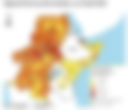
East Africa cross-border trade bulletin for January - March 2024
The Market Analysis Sub-group of the Food Security and Nutrition Working Group (FSNWG) monitors informal crossborder trade of 88 food commodities and livestock in eastern Africa in order to quantify the impact on regional food security. This bulletin summarizes informal trade across selected borders of Tanzania, Burundi, Rwanda, Uganda, Kenya, Somalia, Djibouti, Ethiopia, Sudan, South Sudan, and DRC. Recent updates indicate that:
- In the first quarter of 2024, above-average harvests and lower prices of maize and rice boosted regional trade of these cereals. Above-average rice production in Tanzania, a ban on wetland rice production in Uganda, and high demand in deficit-producing Burundi and Ethiopia have resulted in above-average regional rice trade. Consequently, regional rice trade volumes surpassed those for beans compared to the fourth quarter of 2024, becoming the second most traded commodity in the region, following maize.
- Uganda's maize flour exports to South Sudan and sugar re-exports from Somalia to eastern Ethiopia and Kenya also contributed to increased overall regional trade activity in the first quarter of 2024.
- Bean prices are elevated throughout the region due to low initial stocks despite a good harvest. High domestic demand, conflict-related trade disruptions, and high inflation in key production zones curtailed regional sorghum trade.
- Regional livestock trade has seen an upsurge due to the high demand from domestic and Middle Eastern markets. The general upsurge in regional trade and above-average harvests have kept prices close to average in most markets. However, Ethiopia and South Sudan have experienced significant currency depreciation and high headline inflation, driving increased import prices. Prices in these countries are expected to remain elevated through February 2025.



